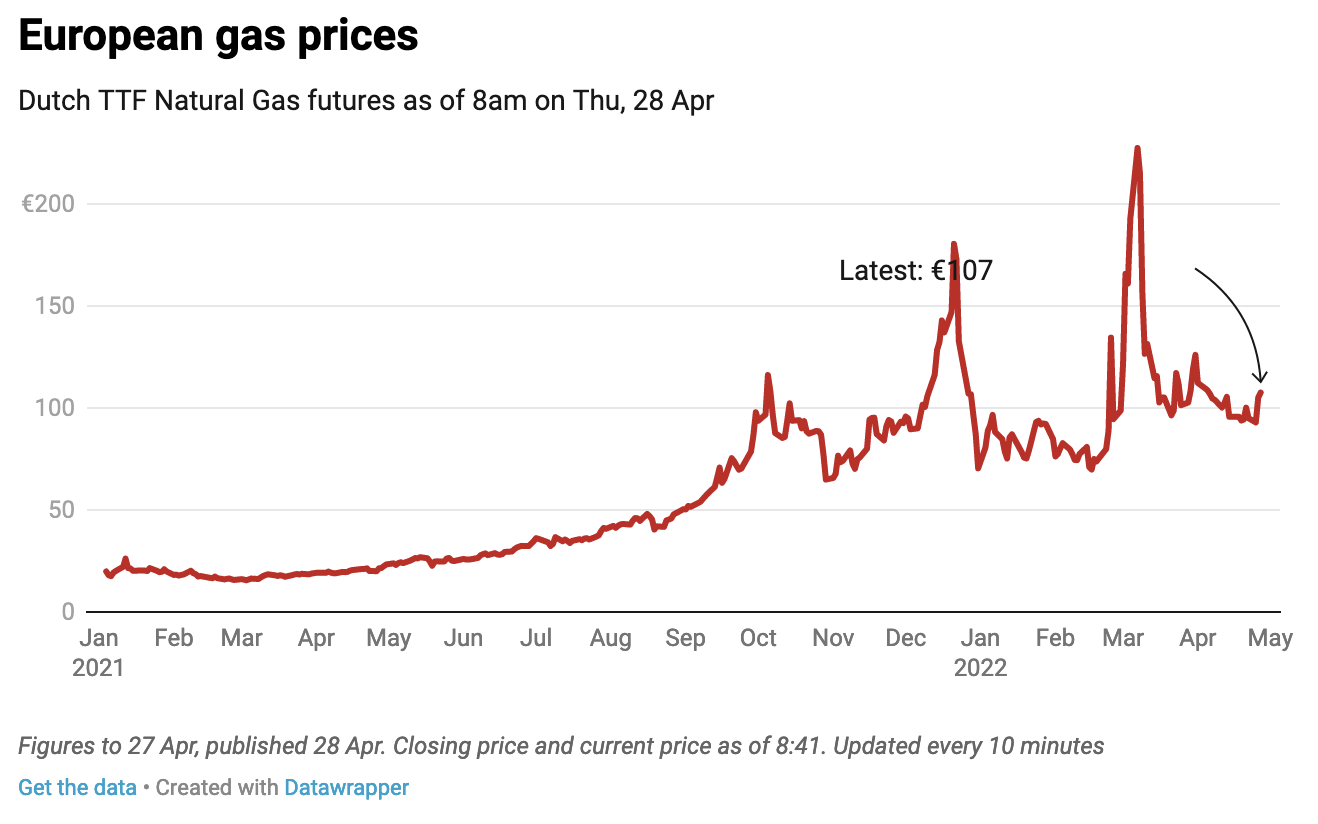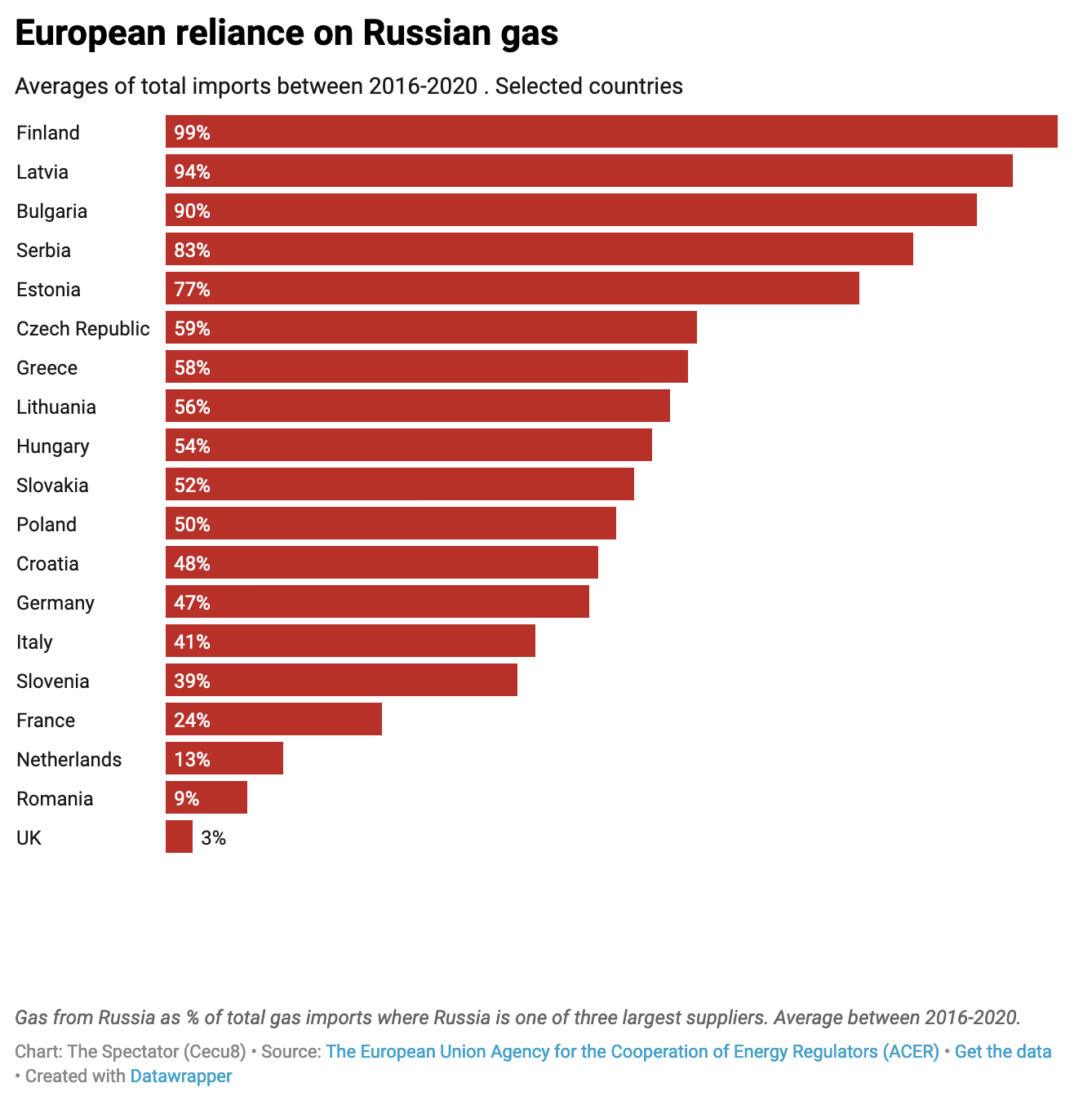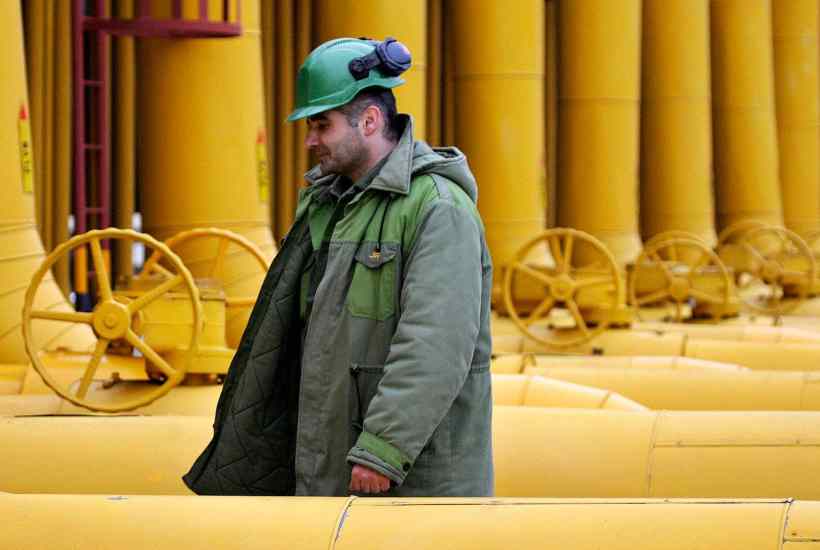Russia is turning off the gas to Poland; the country’s state-owned gas supplier has refused to pay Gazprom in roubles. Bulgaria has also said that Russia would shut off their gas supplies. This is a serious escalation and raises questions about how other countries will respond to the demand. The risk of EU unity fracturing is growing.
For Vladimir Putin, the rouble demand serves an important geopolitical purpose: splitting the West. What Germany and its energy buyers will do is critical. Circumventing the sanctions, as it seems Germany is doing, especially while other EU countries are having their gas shut off for adhering to sanctions rules, will break EU solidarity. And it will add fuel to an already-raging dispute between Poland and Germany. Is Brussels about to be split between compliers and sanctions-busters?

For Poland, losing the 10.2 billion cubic metres that Gazprom annually supplied is not such a big problem. The country’s storage of 3.5 billion cubic metres is 76 per cent full, and it can draw on supplies from neighbouring countries while it finds alternative sources of gas. Poland had wanted to stop importing Russian gas from the end of this year anyway.
The larger issue is the rouble demand itself and how it circumvents sanctions. The new Russian rules stipulate that in order to be in compliance, a firm buying gas must have two accounts at Gazprombank to facilitate gas buying: a euro account and a rouble one. After the buyer pays into the euro account, Gazprombank then exchanges the euros for roubles and deposits them in the buyer’s rouble account. It is from here that Gazprom is paid and this is when the payment is considered to have been completed.
For weeks, Brussels, member states and firms all tried to figure out whether this was compatible with the EU’s Russian sanctions. Uniper, Germany’s largest gas buyer, said recently that it thought the scheme was compliant. Having read through the communication the European Commission issued last week on the Russian decree, that doesn’t seem like it is the case. Just look at the final paragraph, which suggests that to continue complying with sanctions:
EU companies could make a clear statement that they intend to fulfil their obligations under existing contracts and consider their contractual obligations regarding the payment already fulfilled by paying in euros or dollars, in line with the existing contracts, as before the adoption of the decree.
The Russian rules require the buyer to set up a rouble account and stipulates that the euro payment needs to be converted into roubles as part of the payment process. It is hard to see how complying with the Russian decree could possibly also be seen to comply with the sanctions.

When looking at what the Russian scheme is intended to do, it’s easy to see why. Normally, any transaction from euros into roubles would have to be settled via the European payment system Target 2, which would pick up potential activity with sanctioned entities and stop it from happening. Keeping the transaction within Gazprombank, a non-sanctioned entity, allows Russia to sidestep this mechanism for enforcing sanctions.
How other buyers of Russian gas have decided to react will become clearer over the coming days as payments for Gazprom-supplied gas under the new decree are due. Buyers’ payment deadlines are not public knowledge, so if or when any other stoppages will happen is difficult to predict in advance. What can be predicted, however, is that Europe is headed for an almighty fight if different countries continue to interpret the sanctions rules differently.
Got something to add? Join the discussion and comment below.
Get 10 issues for just $10
Subscribe to The Spectator Australia today for the next 10 magazine issues, plus full online access, for just $10.
This article was first published in the EuroIntelligence morning briefing. For a trial subscription click here.




















Comments
Don't miss out
Join the conversation with other Spectator Australia readers. Subscribe to leave a comment.
SUBSCRIBEAlready a subscriber? Log in